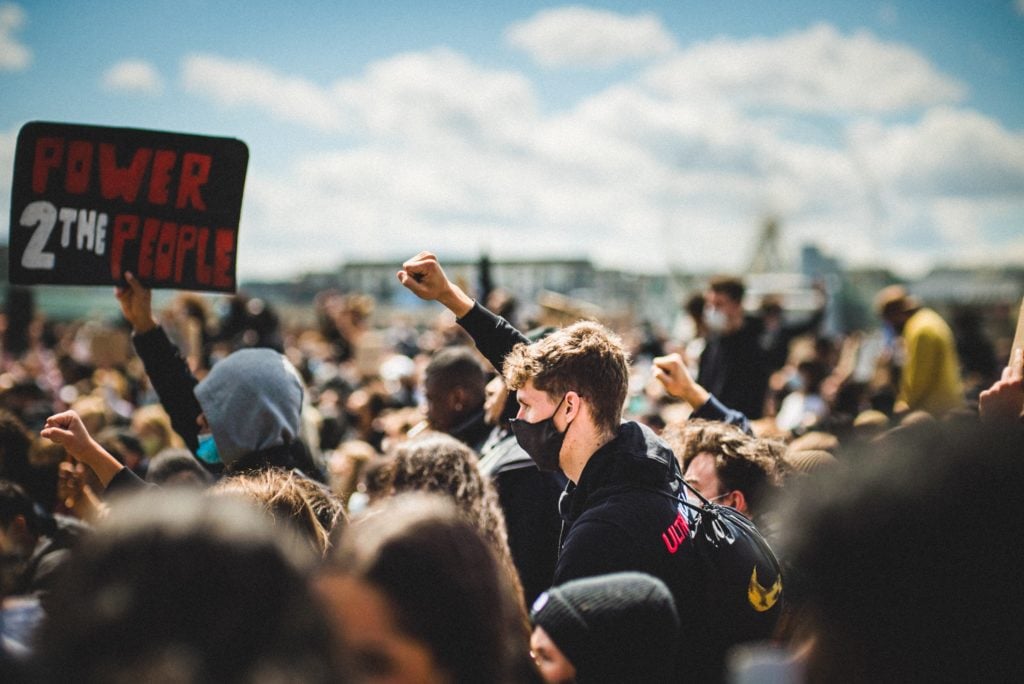Stopping the Over-Penalization of Civil Disobedience at Protests in the U.S.
PUBLISHED: APRIL 16, 2022
In an article in Cornell Law Review, ICNL’s Nick Robinson and Elly Page argue for more robust constitutional protection for civil disobedience at demonstrations.
Civil disobedience at protests has long been used to achieve social justice in the United States. Such nonviolent unlawful conduct has ranged from sit-ins at segregated bus terminals or lunch counters in the Jim Crow South to advocates for women’s suffrage obstructing traffic while peacefully protesting in front of the White House.
In the last five years, states across the U.S. have enacted dozens of new laws that target civil disobedience at protests with draconian penalties. For example, in response to racial justice demonstrations, states have dramatically increased penalties for obstructing roads and sidewalks. In Tennessee, Iowa, and Arkansas, peaceful protesters can now face up to a year in jail for obstructing a sidewalk. And in response to protests against fossil fuel pipelines, states have created felony penalties for trespassing near a pipeline or interfering with its construction.
Demonstrators and protest organizers have also faced expanded liability for civil disobedience. For example, when a Black Lives Matter activist helped lead a street protest in Louisiana, a police officer sued the activist after being injured by an unknown person in the crowd. The officer claimed that, since it was unlawful to obstruct a roadway, the protest was not a First Amendment-protected demonstration, and so the protest organizer could be held liable for others’ actions even though they did not engage in violence themselves.
In addition to undermining the U.S.’s proud tradition of civil disobedience, severe penalties and expansive liability for conduct related to nonviolent protest can more generally chill peaceful protests, as demonstrators become confused about what conduct might result in serious criminal sanctions or civil liability.
This article argues that U.S. courts should provide limited constitutional protection for unlawful, nonviolent conduct at protests. During a demonstration, any penalties for this type of civil disobedience need to be targeted and proportionate, not draconian and silencing. Further, those engaged in such nonviolent conduct at demonstrations should not face civil liability for the actions of others. Providing such protection is vital to safeguarding the U.S.’s tradition of nonviolent dissent at protests.
Read the article Protecting Dissent: The Freedom of Peaceful Assembly, Civil Disobedience, and Partial First Amendment Protection, 107(1) Cornell Law Review 229 (2021)
Sign up for our newsletters
Sign up
